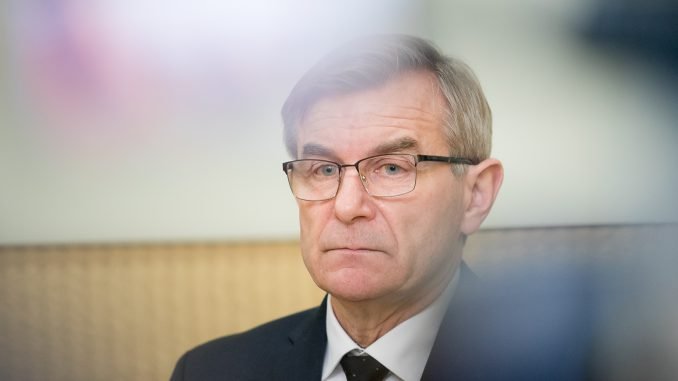
“We’re talking first of all about safety. When it comes to the construction of the power plant, no matter how much we talk about it, this is probably no longer possible but we can always refuse to buy their electricity,” Pranckietis told Žiniū Radijas news radio on Wednesday morning.
In his words, neighboring countries understand the Lithuanian concerns about the Astravyets N-plant under construction in Belarus.
“Yes, the Lithuanian stance is understood. It sometimes happens that there are doubts but when it comes to safety, everyone understands. Everyone remembers well the Chernobyl example, therefore, have no doubts that safety must be ensured,” said the parliamentary speaker.
Lithuania’s Ambassador-At-Large Darius Degutis, the coordinator of the country’s position and actions in connection to the Astravyets utility, told BNS in early February that Lithuania’s ultimate goal was to seek halting of the Astravyets construction.
“Our message today is a follows: we are asking our partners and friends, responsible organizations and institutions, the European Commission and states to look at the real situation, to understand the risks and to support our logical, healthy call for the Astravyets nuclear power plant construction to be stopped,” the diplomat said.
Leaders of Lithuania’s political parties represented in the parliament last week agreed to closer coordinate the blocking of electricity from the Belarusian Astravyets utility. Signed by leaders of eight parties, the agreement pledges support to the law that would find the Astravyets plant unsafe and ban sale of its electricity on the Lithuania energy market.
A number of incidents have been reported in the Astravyets N-plant construction site some 50 km from Lithuania’s capital Vilnius, which raises doubts in Lithuania about the safety of the utility. The power plant will feature two reactors of 1,200 megawatts (MV) each. The first block should be inaugurated in 2019, followed by the launch of the second one in 2020.
Meanwhile, Belarus has denied the Lithuanian criticism, pledging to apply top safety standards in Astravyets .

Be the first to comment